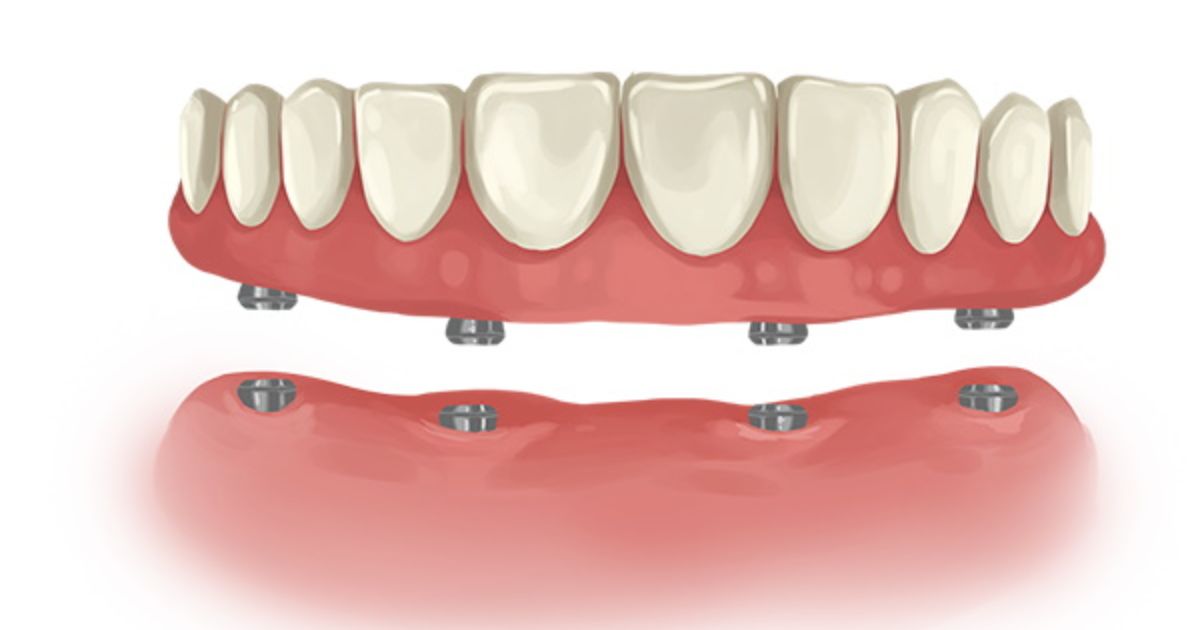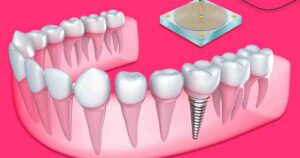Implant dentures offer a stable, long-term solution for tooth loss, combining the benefits of dentures with the security of dental implants. The cost of implant dentures varies widely based on several factors, including the number of implants needed, the type of dentures chosen, and any additional treatments required.
Generally, implant dentures tend to be more expensive than traditional dentures due to the surgical placement of implants. Factors like the materials used, the expertise of the dental professional, and any preparatory procedures also influence the overall cost.
Understanding these variables is crucial in evaluating the potential expenses associated with implant dentures. While they may have a higher upfront cost, many consider them a worthwhile investment due to their durability, natural appearance, and enhanced functionality compared to conventional dentures.
Dentures vs. Dental Implants: Cost Comparison
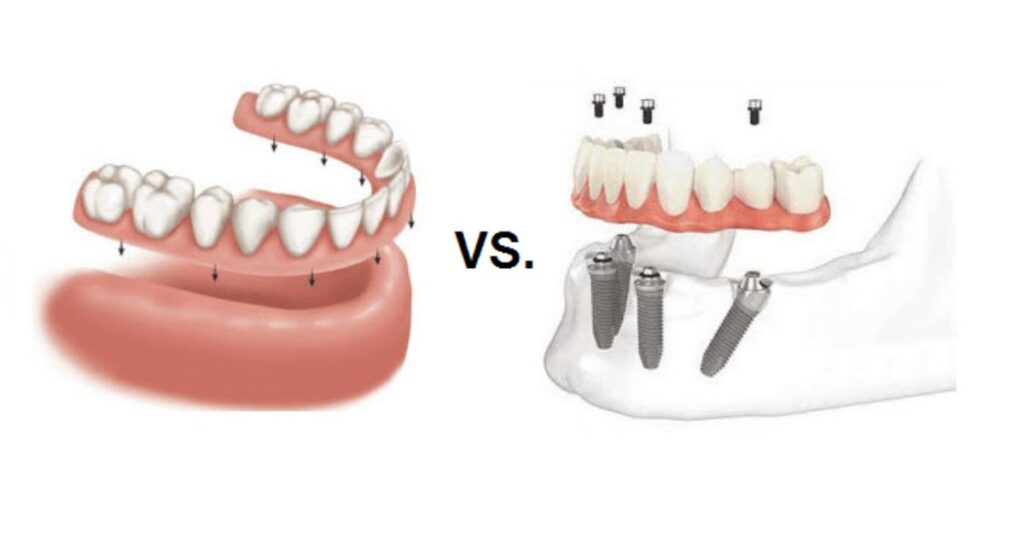
Dentures
Dentures are typically more affordable upfront, with a standard set of complete dentures costing around $1,000. However, they need to be replaced every 5 to 7 years. The costs of dentures can vary depending on the type of dentures, the materials used, and the dental provider’s fees.
Dental Implants
Dental implants are generally more expensive than dentures, with a single tooth implant costing around $3,000. However, they can last a lifetime with proper care, making them a more cost-effective option in the long run. The costs of dental implants can vary depending on factors such as the number of teeth to be replaced, the location of the teeth, the type of implants used, and the dental provider’s fees.
Factors to Consider When Choosing Between Dentures and Dental Implants
Cost
One of the main factors to consider when choosing between dentures and dental implants is the cost. While dentures are more affordable upfront, dental implants can be more cost-effective in the long run due to their longer lifespan. It is essential to compare the initial costs, as well as the long-term costs, when making the decision.
Quality of Life and Oral Health

In addition to the financial aspects, it is crucial to consider the impact of each option on your quality of life and oral health. Dental implants are often considered a better option for oral health, as they can preserve the jawbone and prevent further bone loss. Dentures, on the other hand, may require more frequent dental visits and adjustments.
Dental Provider’s Expertise
The expertise of your dental provider is an essential factor to consider when choosing between dentures and dental implants. Experienced dental implant experts can provide personalized treatment plans and ensure the best possible results. It is essential to consult with your dental provider to determine which option is best suited for your specific needs.
How Do The Costs Of Dental Implants Compare To Other Tooth Replacement Options
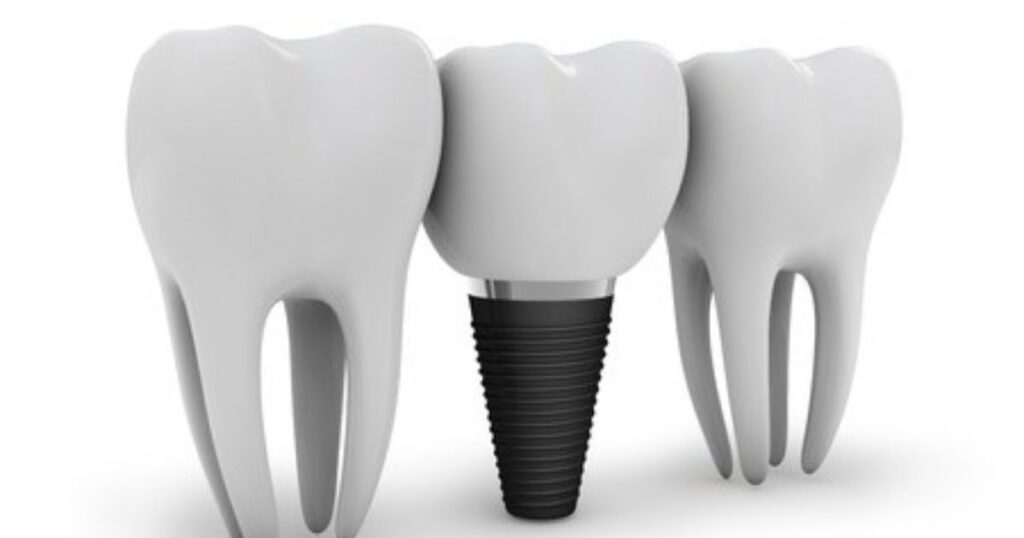
Dental implants can be more cost-effective compared to other tooth replacement options over the long term. While the initial investment for a single dental implant can range from $1,000 to $4,000 or more, they can last a lifetime with proper care, making them a higher-value alternative. Some dentists offer financing options or payment plans to help make treatment more affordable.
From a purely financial perspective, dental implants are cost-competitive with other tooth replacement options over the long term, and when factoring in quality of life and long-term oral health, they clearly rank as the higher-value alternative. A literature review also suggests that for patients with mandibular edentulism, dental implants were associated with higher initial costs in comparison with conventional dentures, but they can be more cost-effective in the long term.
Therefore, while the upfront cost of dental implants may seem significant, their long-term cost-effectiveness and benefits make them a favorable option for many individuals.
Pros And Cons Of Dental Implants Compared To Other
Dental implants offer several advantages over other tooth replacement options, but they also have some drawbacks that should be considered. Here’s a comparison of the pros and cons:
Pros of Dental Implants
Permanent Tooth Replacement: Dental implants are made from titanium, which is biocompatible and can last a lifetime with proper care.
Natural Look and Feel: They closely resemble natural teeth in terms of functionality and aesthetics.
Prevent Bone Loss: Implants help prevent bone loss in the jaw, which can occur with other tooth replacement options.
Improved Chewing Ability: They restore the ability to chew effectively, enhancing overall oral function.
Long-Term Durability: With proper maintenance, dental implants can last for a lifetime.
Cons of Dental Implants
Higher Initial Cost: Dental implants are generally more expensive upfront compared to other tooth replacement options.
Surgical Procedure: The placement of dental implants requires surgery, which may not be suitable for everyone.
Multiple Appointments: The implantation process involves multiple dental appointments and a longer treatment timeline.
In summary, dental implants offer a long-term, durable, and natural-looking solution for tooth replacement, but they involve a higher initial cost, surgical procedure, and may not be suitable for everyone. It’s essential to weigh these pros and cons against your individual needs and circumstances when considering tooth replacement options.
What Are The Alternatives To Dental Implants For Tooth Replacement?
There are several alternatives to dental implants for tooth replacement, including:
Dentures
Dentures are removable, natural-looking false teeth that replace multiple missing teeth. They are a more affordable option than dental implants, but they may require more frequent dental visits and adjustments.
Dental Bridges
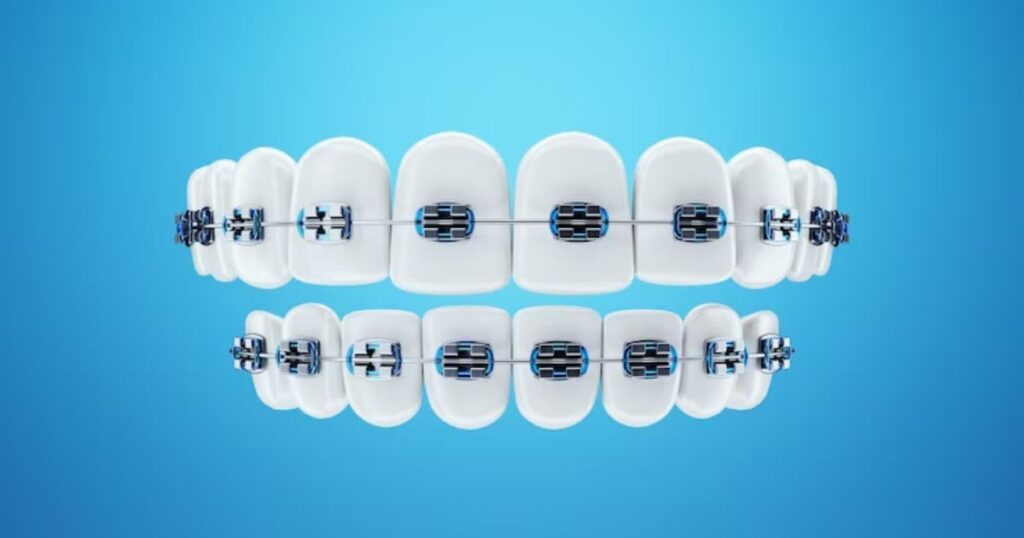
Dental bridges are a fixed tooth replacement option that involves placing a prosthetic tooth between two dental crowns. They are a good option for patients with one or more missing teeth, but they require healthy adjacent teeth to support the bridge.
Root Canal Therapy
If a tooth is savable, one alternative method to restore a tooth is root canal therapy, which involves removing the dead or dying tissue inside the tooth1. After the roots have been cleaned, a dentist places a dental crown to complete the restoration.
Gum Disease Treatments
Gum disease treatments can be an alternative to dental implants for patients with gum disease that has caused damage or decay to their teeth. With proper regenerative care, it is possible to restore gums and prevent further tooth loss.
Flippers
Flippers are a removable partial denture that can be used to replace one or more missing teeth. They are less expensive than dental implants, but they are not a permanent solution and may require frequent adjustments.
Do Nothing
In some cases, doing nothing may be an option for patients who are not experiencing any significant loss to their teeth or gums. However, this option may lead to further oral health problems and should be discussed with a dental professional.
It’s important to note that each alternative has its own set of pros and cons, and the best option for tooth replacement will depend on the individual’s specific needs and circumstances. It’s essential to consult with a dental professional to determine the best course of action.
What Are The Most Common Reasons For Choosing Dental Implants?
The most common reasons for choosing dental implants over other tooth replacement options include:
**Permanent Tooth Replacement**: Dental implants are made from titanium, which is biocompatible and can last a lifetime with proper care. They offer a permanent solution to tooth loss, unlike other options such as dentures or bridges that may need to be replaced several times over the years.
**Natural Look and Feel**: Dental implants closely resemble natural teeth in terms of functionality and aesthetics. They are custom-made to blend seamlessly with your surrounding teeth, providing a natural-looking and natural-feeling replacement for missing teeth.
**Prevent Bone Loss**: Implants help prevent bone loss in the jaw, which can occur with other tooth replacement options. They stimulate the underlying jawbone, which keeps it healthy and growing normally.
**Improved Chewing Ability**: Dental implants restore the ability to chew effectively, enhancing overall oral function. They allow patients to eat what they want without worrying about discomfort or slippage.
**Long-Term Durability**: With proper maintenance, dental implants can last for a lifetime. They are incredibly durable and can withstand the daily wear and tear of normal use.
In summary, dental implants offer a permanent, natural-looking, and natural-feeling solution for tooth replacement. They prevent bone loss, improve chewing ability, and are incredibly durable. These benefits make them a popular choice for many individuals who are looking for a long-term solution to tooth loss.
FAQ’s
Are implant dentures worth it?
Implant-supported dentures can help bring their confidence back. Patients are able to speak more easily and enjoy life without the constant worry of how their teeth look and feel.
How long do implant dentures last?
Implants have the ability to last a lifetime with proper care and maintenance though your denture will likely need to be replaced every 10 to 15 years due to regular wear and tear on the porcelain. The nylon O-rings will wear out more quickly and probably need to be replaced every one to five years.
Do implant dentures look natural?
The implant itself acts as the root. Patients who opt for implant dentures generally attest to their natural appearance and feel.
Is tooth implant painful?
The procedure itself is not painful since it is performed with either general or local anesthesia to completely numb the mouth.
Conclusion
The cost of implant dentures varies depending on several factors like the number of implants needed, materials used, geographic location, and additional procedures required. On average, the total expense includes the dental implants, abutments, denture fabrication, and any preliminary treatments.
While the initial cost may seem higher than traditional dentures, implant-supported options offer greater stability, durability, and improved oral function, potentially reducing long-term expenses for repairs or replacements. Consulting with a dentist is crucial to determine the personalized treatment plan and associated costs. Understanding that implant dentures are a long-term investment in oral health and improved quality of life underscores their value despite the initial financial commitment.
Comparing the benefits, durability, and partial dentures cost of implant dentures emphasizes their potential for lasting comfort and functionality as a reliable tooth replacement solution.
